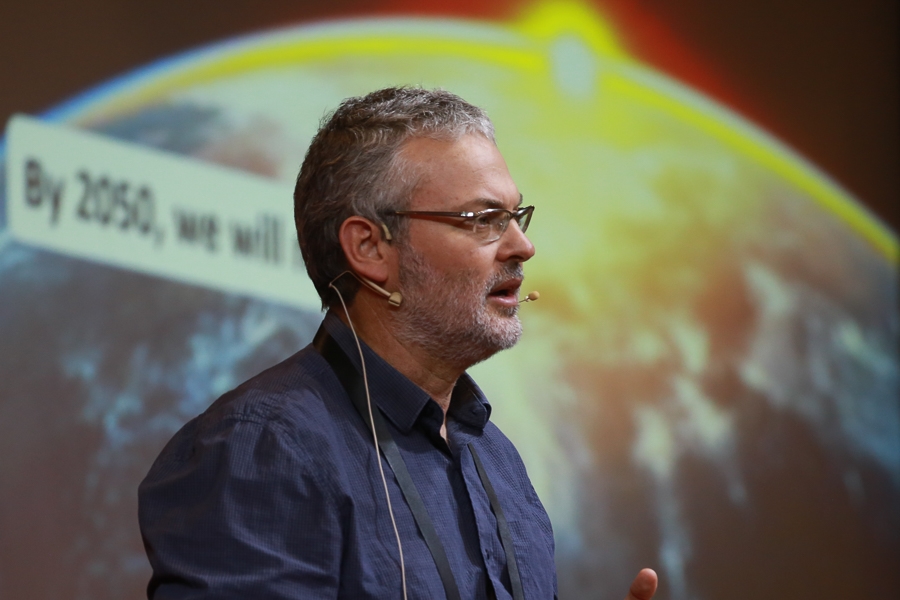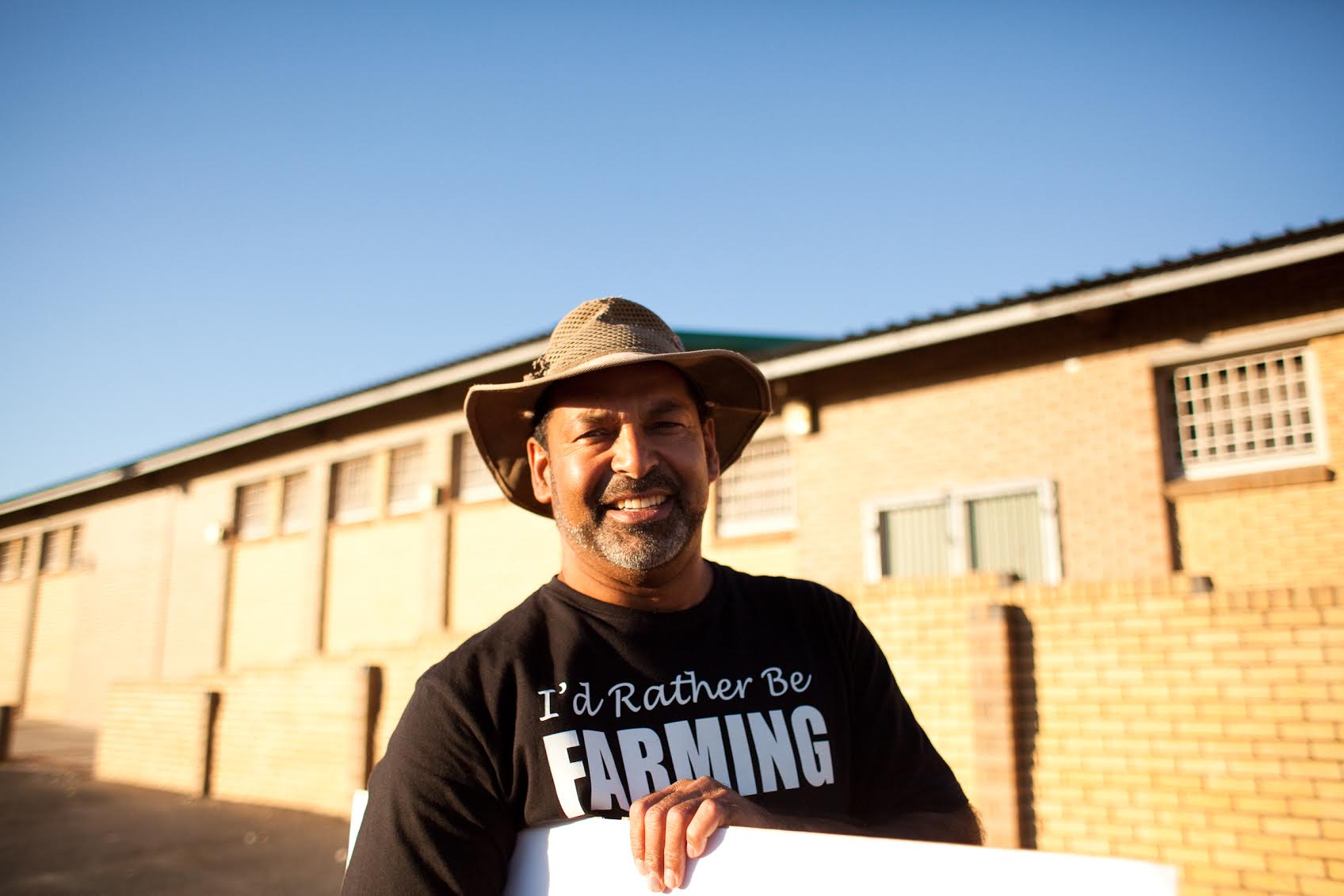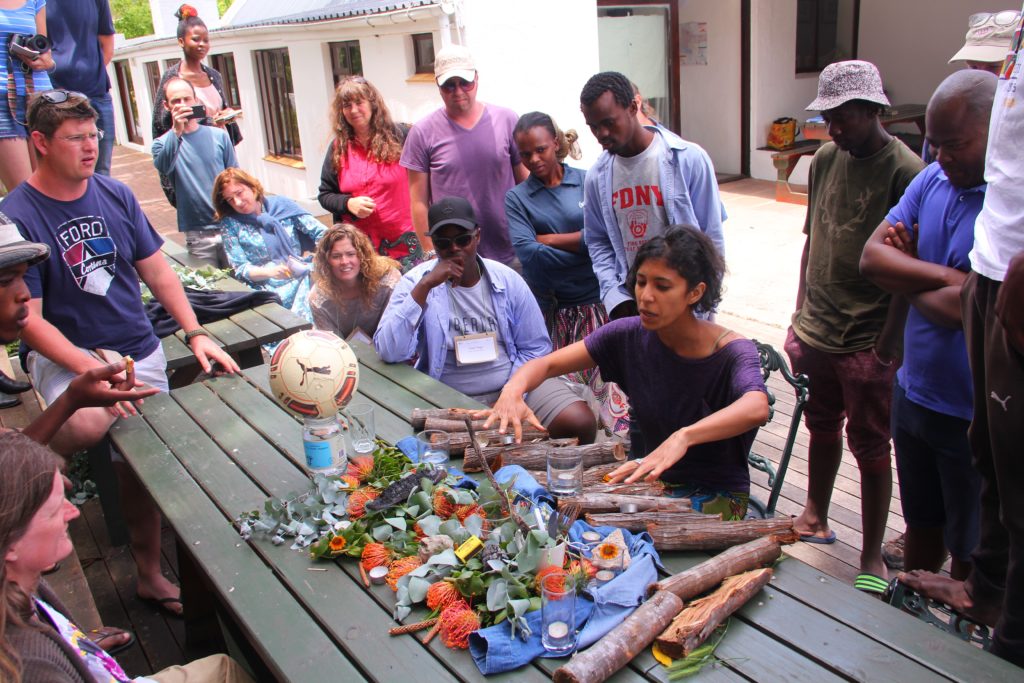 Stockholm Resilience Centre new host of Global Resilience Partnership secretariatThe Global Resilience Partnership (GRP), an independent partnership of public and private organizations working towards a sustainable and prosperous future for all, has moved its secretariat to the Stockholm Resilience Centre, home of GRAID. The secretariat acts as a support to the entire partnership, including several big actors in the international development sector. GRAID is […]
Stockholm Resilience Centre new host of Global Resilience Partnership secretariatThe Global Resilience Partnership (GRP), an independent partnership of public and private organizations working towards a sustainable and prosperous future for all, has moved its secretariat to the Stockholm Resilience Centre, home of GRAID. The secretariat acts as a support to the entire partnership, including several big actors in the international development sector. GRAID is […]The Global Resilience Partnership (GRP), an independent partnership of public and private organizations working towards a sustainable and prosperous future for all, has moved its secretariat to the Stockholm Resilience Centre, home of GRAID. The secretariat acts as a support to the entire partnership, including several big actors in the international development sector. GRAID is one of GRP’s knowledge partners, sharing its findings and applications with the GRP while the GRP acts a platform for GRAID’s work.
With the relocation to Stockholm Resilience Centre, GRP’s start to focus more on resilience thinking and its applications, and will also view the world as more interconnected. “We are excited to be the new host of the GRP Secretariat and see this as a real opportunity to help develop a global partnership for transformations to resilience building for sustainable development in the Anthropocene, by strengthen the synergy between knowledge and solutions,” says Johan Rockström, executive director of the Stockholm Resilience Centre.
Read more about the Global Resilience Partnership at the Stockholm Resilience Centre
The GRP will also welcome a new CEO, Deon Nel. Currently the global conservation director at the World Wildlife Fund (WWF), Nel will take on full responsibility come August. Nel hails from South Africa and has spent most of his career working in and with developing countries, particularly in Africa. In his current role at the WWF, he oversees WWF’s conservation efforts spanning around 100 countries. He also has experience with developing partnerships between the public sector, private sector, and with multilateral development banks. Furthermore, he has overseen WWF’s Global Policy & Advocacy team during the finalisation and adoption of the 2030 Sustainable Development Agenda.
Dr. Nel also believes in the importance of resilience in development. He says that:
“the world needs the thinking around resilience more than it ever needed it before. We are at a tipping point seeing risk levels higher than ever before, but the opportunity to embrace resilience is at the highest point as well. The GRP stands at a key point that we can capitalize on. This is an important and opportune moment for GRP, which I am excited to be part of and lead in the future.”
Read more about Deon Nel as the new CEO of GRP
2018-04-17 Exploring resilience through the stories of food innovators in the Western Cape, South AfricaA new short book explores ‘storymaking’ as a way of unpacking some of the different capacities that social innovators in the food system of the Western Cape, South Africa, are drawing on in their efforts towards resilience. The social innovators highlighted are Chuma Mgcoyi, Kobus van der Merwe, Loubie Rusch, Zayaan Khan, and Nazeer Sonday (pictured above). The work by centre […]
Exploring resilience through the stories of food innovators in the Western Cape, South AfricaA new short book explores ‘storymaking’ as a way of unpacking some of the different capacities that social innovators in the food system of the Western Cape, South Africa, are drawing on in their efforts towards resilience. The social innovators highlighted are Chuma Mgcoyi, Kobus van der Merwe, Loubie Rusch, Zayaan Khan, and Nazeer Sonday (pictured above). The work by centre […]A new short book explores ‘storymaking’ as a way of unpacking some of the different capacities that social innovators in the food system of the Western Cape, South Africa, are drawing on in their efforts towards resilience. The social innovators highlighted are Chuma Mgcoyi, Kobus van der Merwe, Loubie Rusch, Zayaan Khan, and Nazeer Sonday (pictured above).
The work by centre researcher Oonsie Biggs with Rika Preiser, Laura Pereira and Megan Lindow from the Centre for Complex Systems in Transition, Stellenbosch University explores what it means to tell stories, and how the stories people tell can enrich our understanding of resilience, particularly in its more subjective, symbolic and value-laden forms.
The booklet highlights the stories of five ‘food innovators’ connected to the Seeds of Good Anthropocenes project, who shared stories of their motivations and efforts to inspire and shape new kinds of politics, values and social-ecological relationships in a food system mired in deep local and global social inequalities and environmental problems, among many other challenges.
The stories were analysed, and three key resilience frames were borrowed from Katrina Brown’s book as lenses through which to explore their linkages to resilience ideas: rootendess (the relationships that hold people within a community, culture, identity and place); resourcefulness (how different kinds of ‘capacities, knowledges, innovation and learning’ can be harnessed to deal with change); and resistance (opening up fertile spaces for change).
In this process, the stories helped to shed light on how and why each food innovator has created and navigated their own particular path towards shaping change within a larger food system, engaging with diverse themes of fighting for social justice and equality; mobilising and empowering youth; cultivating fertile networks of people and ideas; recovering lost food heritages; cultivating an ethic of care and responsibility for the land; and using creativity to challenge and explore perceptions of food.
The authors’ findings indicate that the storymaking approach may have rich potential for assessing the less tangible aspects of resilience in particular contexts. Storymaking could also be developed as a tool to help communities more purposefully understand and develop their capacities for resilience by interpreting their own stories through resilience frames.
This short book was developed from a master’s thesis in Sustainable Development completed by Megan Lindow in December 2017. This project contributes to GRAID work on understanding and creating transformative spaces, connecting to the global Seeds of Good Anthropocenes project. Through deep engagements with a few key ‘food innovators,’ new knowledge and methods were developed for gaining insight into some of the underlying values and motivations that may contribute to future positive changes in food systems of the Western Cape, South Africa.

In Lindow’s book, a number of social innovators from Western Cape, South Africa are highlighted. Here, social innovator Zayaan Khan talks about foods indigenous to Western Cape during a workshop.
